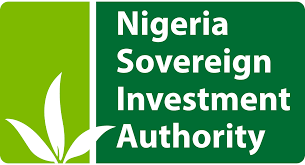The 2025 Africa Sovereign Investors Forum (ASIF), held in Abuja, Nigeria, marked a significant milestone in the continent’s pursuit of sustainable development and economic prosperity. Under the theme “Leveraging African Sovereign Wealth Funds to Mobilise Global Capital for Transformative Development in Africa,” the forum brought together key stakeholders, including African political leaders, sovereign wealth fund managers, and private sector representatives, to strategize on leveraging collective resources for pan-African growth. A central outcome of the forum was the unveiling of a new pan-African investment platform, spearheaded by the Nigerian Sovereign Investment Authority (NSIA), with the ambitious goal of mobilizing $50 billion in blended finance by 2030. This funding is earmarked for crucial sectors such as infrastructure development, agricultural advancement, and climate-resilient projects across the continent.
The establishment of this investment platform underscores a growing recognition of the need for collaborative efforts within Africa to address the continent’s developmental challenges. Recognizing the potential of sovereign wealth funds as catalysts for economic transformation, African nations are increasingly focusing on pooling resources and expertise to drive large-scale projects. This collaborative approach is viewed as essential for attracting significant international investment and fostering sustainable growth across various sectors. The commitment by African sovereign wealth funds to allocate 30% of their portfolios to climate-resilient projects by 2030 further highlights the growing awareness of the urgency of addressing climate change and its impact on African economies.
The ASIF 2025 served as a platform for insightful discussions on the practical application of high-level strategies and the importance of grounding these initiatives in the realities faced by local communities. A key takeaway from the forum was the emphasis on bridging the gap between theoretical climate discussions and the practical needs of those most affected by climate change, particularly farmers. Discussions highlighted the importance of understanding the specific challenges faced by farmers, who are often more concerned with immediate weather patterns and their impact on crop yields than with global climate conferences. This understanding is crucial for developing effective financial models that cater to the real needs of those operating within the agricultural value chain.
The forum also addressed the critical issue of data availability and its impact on investment decisions. Participants stressed the importance of investing in primary data collection to provide investors with the necessary information to make informed decisions. The lack of reliable and comprehensive data is often cited as a major obstacle to investment in Africa. By addressing this data gap, African nations can create a more conducive environment for investment, particularly in sectors such as agriculture, which require detailed information on factors such as soil quality, water availability, and climate patterns. The forum underscored the need to treat data as a valuable commodity and invest in its collection and analysis to facilitate more effective investment strategies.
The expansion of the ASIF membership, with the addition of Ghana’s Petroleum Fund and Zimbabwe’s Mutapa Investment Fund, brought the total number of participating countries to 17, demonstrating a growing commitment to pan-African collaboration. This expansion strengthens the forum’s ability to mobilize resources and implement effective strategies for sustainable development across the continent. The formation of three working groups, focused on agricultural development, climate finance, and data infrastructure, further emphasizes the forum’s commitment to taking concrete steps towards achieving its goals. These working groups will play a crucial role in developing specific action plans and implementing the strategies discussed during the forum.
The ASIF 2025 concluded with a commitment to further collaboration and action. The ASIF Council is scheduled to reconvene later in 2025 to review progress made by the working groups, assess milestones achieved, and agree upon follow-up investment frameworks. This ongoing engagement demonstrates a long-term commitment to leveraging sovereign wealth funds for transformative development in Africa. The forum’s focus on collaboration, data-driven decision-making, and a practical understanding of ground-level challenges positions it as a crucial platform for driving sustainable economic growth and addressing critical issues such as climate change and food security across the continent. The $50 billion blended finance target represents a significant ambition and a potential game-changer for Africa’s development trajectory, particularly in the context of attracting much-needed investment in key sectors.


